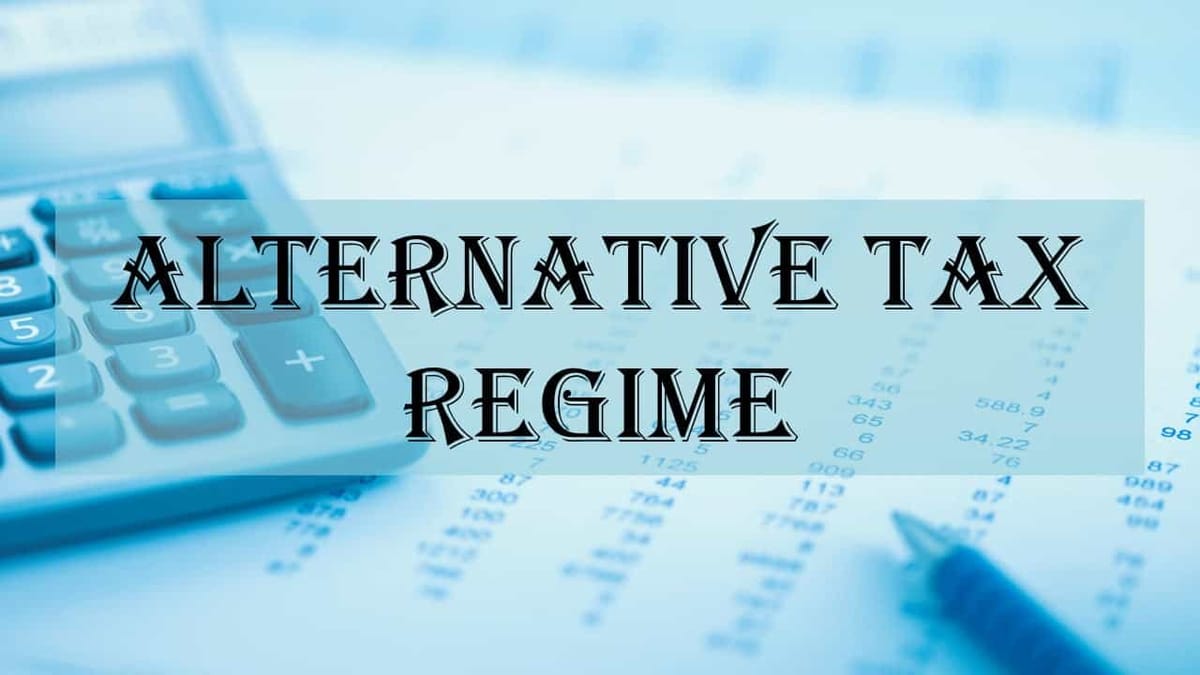Taxpayers are eligible to claim certain deductions, they do not choose the simple regime because key fundamental tax deductions and exemptions are unavailable.
Vidushi | Jan 28, 2023 |

BUDGET 2023: Allows Taxpayers to Claim Tax Deductions under Sec 115BAC to boost Alternative Tax Regime
The Union Budget for 2023 is approaching, and people are wondering what kind of relief it will include. Previous budgets offered a variety of perks, such as deductions and exemptions, which were frequently subject to a number of limitations and limits.
People are wondering about the potential relief that the upcoming Union Budget for 2023 might include. Past budgets have featured a variety of benefits, such as exemptions and deductions, which are frequently accompanied by several requirements and limitations. Taxpayers found it challenging to comprehend the various provisions and take advantage of them as a result of this strategy. The Budget 2020 added a straightforward and different regime in Section 115BAC to address the problem. With the loss of some exemptions and deductions, this section was created to enable individuals and Hindu Undivided Families (HUFs) to pay taxes at a lower rate. By selecting this option, the taxpayer waives all exemptions and deductions, including the standard deduction from income and deductions allowed by Sections 80C, 80D, or 80TTA, among others.
The introduction of Section 115BAC was done for the benefit of all taxpayers. However, if taxpayers are eligible to claim certain deductions, they do not choose the simple regime because key fundamental tax deductions and exemptions are unavailable. A taxpayer typically pays off home loans, child tuition, life insurance premiums, and family health insurance premiums. He is less likely to choose the regime when there are no tax benefits provided for these expenses. As a result, tax deductions must be provided to taxpayers who choose an alternative tax system.
It is recommended that at least the following exemptions and deductions should be allowed to enhance the utility of this section:
Section 80C Deductions:
Individuals or HUFs are eligible for a deduction under this provision if they pay for life insurance, educational costs, provident fund contributions, the repayment of home loans, contributions to pension funds, fixed deposits, etc. A maximum of Rs 1,50,000 can be claimed by the taxpayers under this section.
Section 80D Deduction:
This clause allows taxpayers to deduct the cost of their medical insurance, annual physicals, or other medical expenses. In the event that your parents have reached retirement age, you may additionally deduct the cost of their senior medical insurance.
Deduction under Section 80TTA/80TTB:
Regarding deductions allowed for interest generated on savings account deposits, see Section 80TTA. Both individuals and HUF (Hindu Undivided Family) taxpayers are eligible for the deduction. Under this clause, a deduction may only total a maximum of Rs 10,000. However, if a taxpayer is a senior citizen, Section 80TTB allows for a deduction of up to Rs 50,000 with regard to the deposits made with the bank or post office, including interest collected on term deposits.
Section 16 Standard Deduction:
An individual who receives a salary may deduct expenses under this clause. Regardless of the type of job or the amount of taxable income, a standard deduction of Rs 50,000 is permitted.
Deduction under Section 24:
This provision allows for a deduction for the interest paid by a person or HUF on loans taken out to finance the purchase, building, or renovation of real estate used as a primary residence. For a self-occupied property, a deduction under this clause may be made up to a maximum of Rs 2,00,000.
HRA Exemption:
This clause grants an employee residing in a rented home an exemption from the House Rent Allowance (or “HRA”) paid by their employer. This is one of the typical exclusions that a worker who receives a salary can claim. The HRA is a portion of an employee’s pay that their employer contributes to cover the expense of housing.
In conclusion, Section 115BAC was enacted to help a wide range of taxpayers, but many are unable to fully benefit from it because several tax deductions and exemptions are not available. Common tax exemptions and benefits should be offered in order to increase the usefulness of this section and make it more advantageous to taxpayers. These exemptions and deductions can significantly assist individuals in lowering their tax obligations and making the most of their hard-earned money. As an alternative, Section 115BAC could provide the basic exemption ceiling of Rs. 5 lakh, and the highest slab of 30% should only be applicable when the taxable income exceeds Rs. 20 lakh.
In case of any Doubt regarding Membership you can mail us at contact@studycafe.in
Join Studycafe's WhatsApp Group or Telegram Channel for Latest Updates on Government Job, Sarkari Naukri, Private Jobs, Income Tax, GST, Companies Act, Judgements and CA, CS, ICWA, and MUCH MORE!"